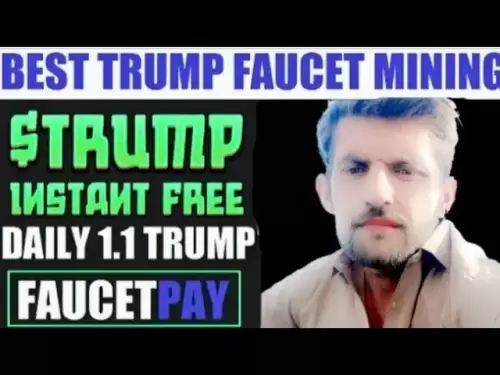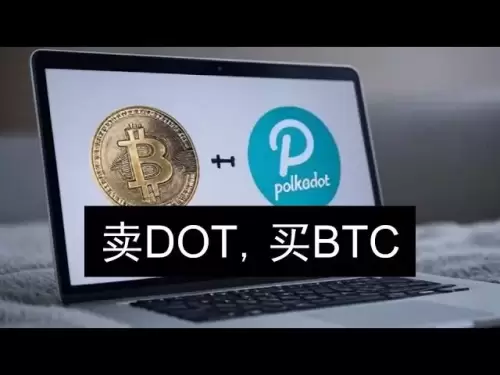 |
|
 |
|
 |
|
 |
|
 |
|
 |
|
 |
|
 |
|
 |
|
 |
|
 |
|
 |
|
 |
|
 |
|
 |
|
加密貨幣新聞文章
Animoca Brands CEO Robby Yung Explains Why He's Bullish on the Web3 Landscape
2025/05/01 00:03

During the 2025 Paris Blockchain Week, BeInCrypto sat down with Robby Yung, CEO at Animoca Brands, a leading force in Web3 innovation. In a wide-ranging conversation, Yung shared his insights on the Web3 landscape, investment strategies, regulatory shifts, the resilience of the Metaverse, and how Animoca is preparing for a decentralized AI-driven future.
From the current market dynamics post-US elections to the ambitious vision for Mokaverse and AI-powered investment tools, Yung offers a candid and detailed look into where the next phase of Web3 could be heading.
Robby Yung’s Assessment of the Current US Market Trends
The whole global economy is having a little bit of volatility at the moment, courtesy of the U.S. President. Indeed. But generally, for the Web3 space, we are quite bullish for this year.
Last year ended with a lot of positive sentiments based on the outcome of the U.S. elections. And I think that was a signal, not necessarily that we expect the U.S. to be hugely bullish and supportive of Web3 and crypto, which is possible, but not a guarantee. More importantly, we felt like, as an industry, that this is the end to the U.S. being a damper on crypto, of being a place where there was potentially regulatory overreach, suppressing innovation in the space.
We have seen in the first three months of this year that if nothing else, the U.S. has now succeeded in removing the constraints to the Web3 industry, primarily in the form of the SEC. So, all of the SEC enforcement actions that were initiated towards companies in the Web3 space have now largely been removed – well, have all been removed, frankly.
I think this is a huge benefit to the space, because what we found was not just direct action on companies in America taking activities in crypto, but also a chilling effect in other jurisdictions, where we noticed companies being reluctant to venture into the space because of fear of what the U.S. regulators might think. So, I think that fear, having been lifted, actually stimulates a lot of innovation, not just in the U.S., but around the world.
Crypto Regulations: U.S. vs. EU
There is always regulatory arbitrage, and this is true in any business. This will still be true, but I think that because the EU has been working on building regulation in this space for longer and in a more consistent way, with MiCA, for example, the EU is actually currently ahead, as far as if you’re comparing them as competitors.
Now, in the U.S., the short-term view, in my opinion, is not going to be a new regulation, but an absence of enforcement. It’s more going to be just an open playing field for people to try things, but without specific guardrails in place in terms of regulatory frameworks. The reality is that no matter how enthusiastic the current U.S. administration is about this, legislation takes time.
Robby Yung’s Investment Philosophy
We are, by nature, strategic investors; most of the capital that we invest comes off our balance sheets. We also have a venture fund called Animoca Ventures, which is more of a traditional VC.
So, they are primarily looking at a financial return. They have outside shareholders, etc. But most of our activity actually happens from our balance sheet investing.
And because this is our balance sheet, we try to invest in things that are strategic. What does that mean for us? We invest very broadly, as it’s known in this space. We have 550+ investments in the space across every category.
Everything from consumer entertainment, like gaming, to institutional financial services, related, you name it. And what we mean by strategic is projects in which we feel like we can become involved and help them have a better outcome. We can help them with support, with tokenomics, and help them design their open token economies.
We can help them with marketing, user acquisition, and onboarding new users. Also, we can help them with liquidity and aftermarket support, once they have a token live in the market.
All of these things along the way of supporting them in building, launching, and operating successful tokens, as long as we can be helpful in achieving a better outcome, then we’re interested in investing.
The Usual Structure of Investment for Animoca Brands
As a strategic investor, we’re also a native Web3 investor. Our philosophy is that tokens are basically the incarnation of network effects.
We’re interested in acquiring, holding, and possessing tokens. We want to understand the token strategy of every investment we look at. The company does not need to have a token yet, but there needs to be a plan for tokenization. If there’s no plan for tokenization, in our minds
免責聲明:info@kdj.com
所提供的資訊並非交易建議。 kDJ.com對任何基於本文提供的資訊進行的投資不承擔任何責任。加密貨幣波動性較大,建議您充分研究後謹慎投資!
如果您認為本網站使用的內容侵犯了您的版權,請立即聯絡我們(info@kdj.com),我們將及時刪除。
-

-

-

-

-

-

-

- PI Network(PI)價格預測:令牌是否會從最近的80%下降?
- 2025-06-15 17:30:11
- PI網絡最近承受著巨大的壓力,未能跟上更廣泛的加密貨幣市場恢復。
-

-





























































